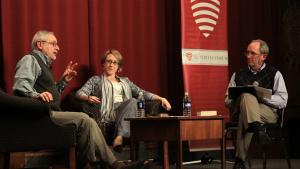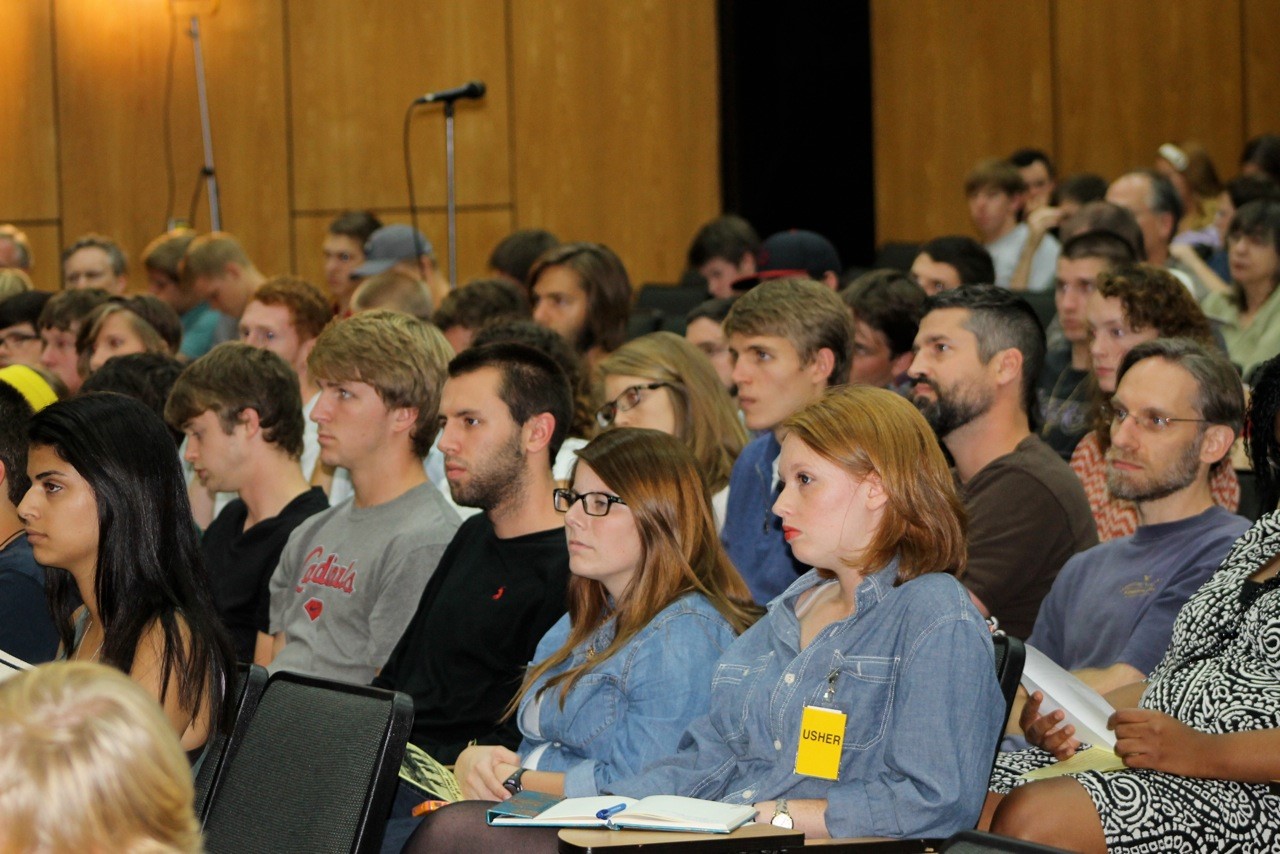 Christians in academia can often feel marginalized and their perspectives misunderstood because of their faith. How do we—as Christians leaders on campus—foster an environment that is welcoming to conversations about faith, even when there is disagreement?
Christians in academia can often feel marginalized and their perspectives misunderstood because of their faith. How do we—as Christians leaders on campus—foster an environment that is welcoming to conversations about faith, even when there is disagreement?
Julian Reese, senior CSM in the GFM South Central Region, asked that very question when he began working with GFM in 2005 at the University of Tennessee-Knoxville (UT).
“I was a pastor before and what drew me to GFM more than anything was our vision to see God renew the entire university—people, ideas, and structures,” Julian recalled. “I was intrigued by that and wanted to figure out what that would mean and look like in my context.”
Humble Beginnings
Shortly after arriving on campus, Julian and chapter leaders at UT began partnering with The Veritas Forum to host a campus-wide conversation around faith and academics. The goal was to reach the whole campus, but very few people showed up. “They stayed away in droves,” Julian said.
At the encouragement of a donor and mentor, Julian retooled the GFM chapter leaders’ focus and instead “started small” by reaching one department. Julian thought “that’s simple... we can do that!” Over the ensuing months, the team worked on a plan that eventually led to what they call Veritas Conversations. These public dialogues facilitate ongoing departmental relationships and take place about twice each academic year in partnership with The Veritas Forum.
Engaging in Civil Dialogue
 These Conversations are an opportunity to bring a Christian academic voice to the academy, which not only enhances the chapter’s graduate students’ education and models Christian witness, but also benefits university departments. Christians and non-Christians have engaged in vigorous, respectful conversations across differences about things that matter.
These Conversations are an opportunity to bring a Christian academic voice to the academy, which not only enhances the chapter’s graduate students’ education and models Christian witness, but also benefits university departments. Christians and non-Christians have engaged in vigorous, respectful conversations across differences about things that matter.
“We want to enhance our graduate students’ and faculty’s opportunities as the next generation of academics by helping them engage with Christian scholars of excellence who have earned respect in their given field of study,” Julian said.
From Good Will to Good News
Julian believes that having the opportunity to host these Conversations and engage the campus all starts with trust, humility, and curiosity. Julian has approached relationships with faculty at UT seeking to understand their worldview and what they think. In turn, his curiosity leads to faculty trusting him and wanting to know more about who he is and what he believes.
It’s also important to make sure those in academia better understand Christians, Julian says. “I’ve discovered that most non-Christian academics are not against Christians, they just don’t understand us. And if they don’t understand us, they can’t trust us.” Julian sought to change this at UT by being humble in his approach and expressing genuine curiosity.
“I talked to one department head who said he was a ‘card-carrying atheist,’” Julian recalled. But the faculty was open to these Conversations because of mutual trust and interest in the life of the mind and pursuit of truth. With a foundation of trust, humility, and curiosity, Julian and GFM at UT have been given a great opportunity to be salt and light in the university.
Taking the Next Step
Recently, the chapter leaders prayed about opportunities to build on this ministry and further enhance students’ education and faith. Several Christian philosophy students on the leadership team had conversations with faculty about opportunities to further engage. Now, GFM at UT is partnering with the Emerging Scholars Network to pilot a mentorship program.
GFM chapter leaders at UT are currently exploring the development of an Emerging Scholars Mentor Program which would offer dissertation travel scholarships for students looking to grow in their faith within academia. This summer, they are sending their first student, Devon, to spend a week in England with renowned Christian scholar Dr. Richard Swinburne, Emeritus Professor of Philosophy at Oxford University. Devon is pursuing his Ph.D. in philosophy at UT, and is a well-respected Christian and philosophical thinker on campus.
“This is a new step for us as we think about seeking to enrich the intellectual and spiritual life of the University of Tennessee,” Julian says.
How it works
Interested in creatively thinking about fostering an incarnational presence on your campus or in your context? Here are some ideas to get your started.
- Work with graduate students and faculty of faith on campus to identify a topic of discussion and a department to partner with.

- Invite a first-rate, Christian scholar in that discipline to campus. They key is to find a voice that is respected among all people and will enhance the overall goal and mission of the department. “The high quality of people brought in deepens trust on campus,” Julian says.
- Host a discussion between the visiting scholar and someone from the department. Have them dialogue one-on-one in front of an audience. After the dialogue, invite the audience to participate in civil conversations with fundamental disagreements—something not hard to come by with a wide-ranging set of worldviews often present in the room.
- Make sure it’s a conversation, not a debate. Keep the topic academic, looking for common ground between the visiting scholar and the local professor. The goal is to facilitate relationships in the department. People respect and appreciate the engagement and honesty.
- Because of the mutual trust and respect, departments are more than willing to host these conversations and help in promoting them to students and faculty on campus.
Praise God for all he’s doing through GFM ministry at UT and around the U.S. May God use each of us for his glory as we seek to be a redeeming influence to the entire university.